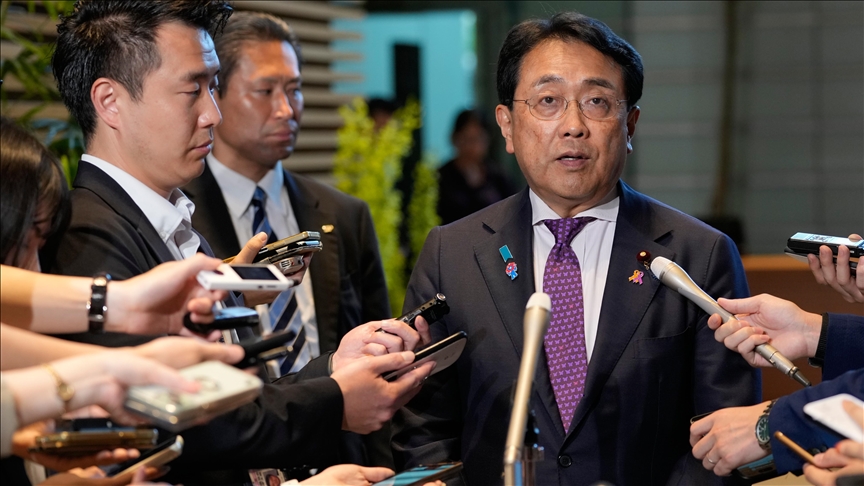Japan's top tariff negotiator says trade deal with US to take effect within 2 weeks
Announcement comes after Trump signed trade agreement with Japan, establishing baseline 15% tariff on nearly all Japanese imports

- Japanese premier expresses hope that deal would 'strengthen the Japan-U.S. alliance, ensure economic security, and promote our nation's economic growth'
ISTANBUL
Japan's top tariff negotiator Ryosei Akazawa said Friday that a trade deal reached between his country and the US will take effect within two weeks, Kyodo news agency reported.
US President Donald Trump signed an executive order Thursday to implement a sweeping trade agreement with Japan, including establishing a baseline 15% tariff on nearly all Japanese imports, including cars, in which the tariff was reduced from 27.5%.
The deal also clears the way for what the White House described as an agreement “unlike any other in American history” involving $550 billion in Japanese investment in US projects.
Under the trade deal, a new Japan-US panel will also be formed to consult on investment projects.
In July, Trump announced the framework of the deal, calling it “perhaps the largest deal ever made” in a post on the US social media company Truth Social’s platform, which he owns.
Under the pact, Japan has also agreed to significantly increase purchases of US agricultural products, including corn, soybeans, and rice, amounting to roughly $8 billion.
Tokyo has also committed to buying US-made commercial aircraft and defense equipment while relaxing restrictions on importing American cars that meet US safety standards.
Akazawa also delivered a letter to Trump from Japanese Prime Minister Shigeru Ishiba inviting him to Japan.
Japanese Prime Minister Shigeru Ishiba said that the steady and speedy implementation of the agreement is "important," following the developments.
He expressed hope that the deal would "strengthen the Japan-U.S. alliance, ensure economic security, and promote our nation's economic growth."
Ishiba added that the tariff agreement is "unrelated" to the possibility of holding a snap leadership election for the ruling Liberal Democratic Party to replace him as leader, following calls for his resignation after the party lost the majority in the House of Councilors election in July.
The Japanese prime minister had said earlier that he would stay on as prime minister, citing the handling of US tariffs as one of the reasons.
Anadolu Agency website contains only a portion of the news stories offered to subscribers in the AA News Broadcasting System (HAS), and in summarized form. Please contact us for subscription options.







